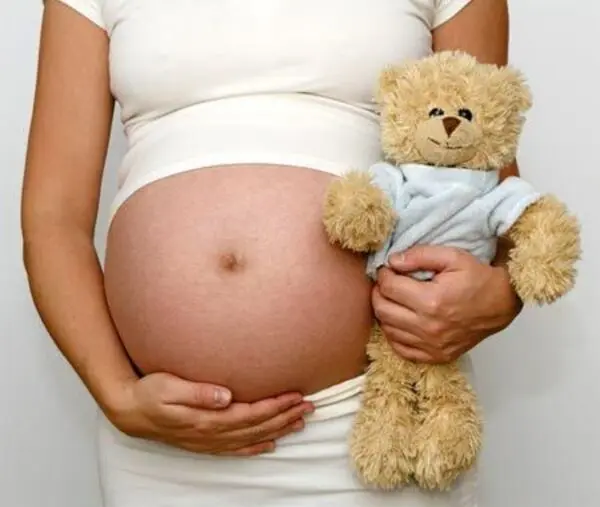Teenage pregnancy: risks and consequences
Know the important physical and psychological consequences of carrying out a pregnancy during adolescence



In this article
- Risks and consequences of teenage pregnancy
- Psychological complications for the pregnant teenager
According to the World Health Organization (WHO), adolescence is the period in a person's life that ranges from 10 to 19 years. years. It is a time of change so much
physical, psychic and biochemical that many times their evolution can be interrupted
due to the presence of a pregnancy. And one in five women in the world already has a child before the age of 18 and every year there are 16 million births to teenage mothers. In the poorest regions of the planet, one in three women become mothers in adolescence.
Risks and consequences of teenage pregnancy
According to experts, the most appropriate age to be a mother is between 20 and 34 years old, since the risk to the health of the mother and child is much lower. Teenage pregnancy is considered high risk and carries more complications. The teenager is not physically or mentally prepared to have a baby and assume the responsibility of motherhood
Teenagers who become pregnant often have:
- Pictures of poor nutrition, with a lack of essential nutrients for the good development of the baby
- A higher number of spontaneous abortions
- Premature births, there are a large number of adolescent babies born before the 37th week of gestation
- Their babies have a low weight since the immaturity of their body means that their uterus has not fully developed. Therefore, the contribution of nutrients from the mother to the fetus is insufficient, also due to the influence of malnutrition for age.
- Teenage mothers have children with more health problems and developmental disorders
- In cases of pregnancies of girls under 15 years of age, the baby is more likely to be born with congenital malformations
- A mother who has a pregnancy at an early age may be more likely to develop hypertensive disorders of pregnancy such as eclampsia, which in turn also influences the increase in preterm births.
- According to the WHO, they are women at greater risk of developing infections in quarantine or duly called the puerperium, such as puerperal endometritis.
Psychological complications for the pregnant teenager
In general, studies talk about a series of circumstances that teenage mothers go through:
- Fear of being socially rejected
One of the consequences of adolescence and pregnancy is that the young woman feels criticized by her family environment and her friends, and she tends to isolate herself from the group.
- I reject the baby
They are girls and do not want to assume the responsibility, time and obligations that come with being a mother. However, this also makes them feel guilty, sad, and their self-esteem is reduced.
- Problems with family
Communicating pregnancy in the family is often a source of conflict and even rejection by those around them.
- Social problems
Adolescents may have more difficulty learning or continuing with their studies, and many tend to suffer a higher rate of school failure. In addition, they may face problems of social insertion.
The World Health Organization (WHO) recommends to avoid teenage pregnancy: limit marriage before age 18, increase the use of contraceptives for adolescents, reduce coerced relationships, and support pregnancy prevention programs in adolescence. In any case, the best prevention is for young people to have good sexual education from within the family. It is important to inform about the risks and complications of teenage pregnancy and all the changes that will occur from the moment the teenager becomes pregnant.
Risks of pregnancy in girls under 12 years of age. What you should know
Situations may arise that endanger the health of the adolescent, the baby and/or both. Adolescents represent 20 - 30 percent of the world population, and it has been observed with concern, an increase and a greater precocity in the onset of youth sexual activity, which is why one of the worldwide problems of adolescents is pregnancy (usually unwanted). What are the risks of pregnancy in girls under 12 years of age?
What physical and psychological changes occur during adolescence?
The World Health Organization (WHO) defines adolescence as the stage of human growth and development that occurs after childhood and before adulthood, between 10 and 19 years of age. It is a transition stage in which an accelerated rate of growth and multiple changes occur as a consequence of physiological processes and which can be divided into three phases:
- Early adolescence
It goes from the ages of 10 to 13 in which the body begins the production of sexual hormones which are responsible for changes at the body level, such as breast development and menstruation in girls, and the increase in testicular volume and of the penis in the case of men, among other changes.
- Middle adolescence
From the ages of 14 to 16, the body continues to grow and the psychological changes are more marked, making them more vulnerable to behaviors that involve risk to their health such as drug consumption, alcohol, tobacco or having sexual activity without protection.
- Late adolescence
Between 17 and 19 years of age, physical and sexual development ends, and there is greater concern for their future, since they have reached psychological maturity.
Dangers of a girl getting pregnant before the age of 12
The prevalence of teenage pregnancies is variable worldwide, with a higher incidence in developing countries.
Pregnant adolescents, if we compare them with pregnant women over 20 years of age, have a greater risk of presenting situations that endanger their health, that of the fetus and in many cases the lives of both and this risk increases even more in adolescence. early. Within these complications we find:
- If it occurs in the first half of pregnancy, risk of miscarriages, anemia, urinary and sexually transmitted infections. If it occurs in the second half of pregnancy, danger of premature birth (before 37 weeks of gestation).
- Greater probability of having a newborn with low birth weight. Premature and low birth weight newborns may have respiratory distress syndrome, brain hemorrhages, severe intestinal problems, and are more likely to die during their first year of life than those born with normal weight.
- Development of preeclampsia and eclampsia, hemorrhages associated with placental conditions and cervical tears at the time of delivery, poor weight gain with associated maternal malnutrition.
- Increased chances of fetal neural tube malformations due to folic acid deficiency.
-In addition to the increased risk of perinatal and fetal maternal morbidity and mortality, pregnant adolescents also present multiple social problems such as family conflicts, discrimination, school dropouts, and changes in their life plans.
As we can see, the life of a teenager is totally transformed with a pregnancy, so we must insist on teaching and disseminating prevention, responsibility and awareness strategies of what a pregnancy in adolescence represents, and in this we must be involved both the family, the school and the health personnel in the sexual and reproductive education of our young people.
